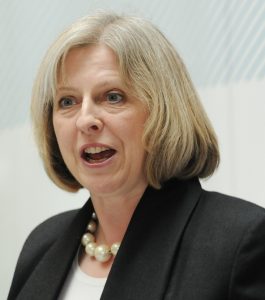 Brexit means Brexit: but what does the UK’s change at the top mean for success in fighting stolen assets?
Brexit means Brexit: but what does the UK’s change at the top mean for success in fighting stolen assets?
The UK is in the middle of conference season, with each of the UK’s main political parties meeting to discuss and outline their priorities for the coming year ahead. None was probably more watched this year than the Conservative Party Conference, which took place just over 100 days after the UK’s vote to leave the European Union and more than half way through new UK Prime Minister Theresa May’s first 100 days in office.
The focus since Theresa May was appointed Prime Minister, after the resignation of David Cameron, has understandably focussed on her thoughts and policies regarding Brexit, alongside the new direction she intends to take, following the high profile firing of a number of top ministers shortly after taking power.
What has been virtually left undiscussed though is what this change means for the work the UK will do concerning preventing the theft of public assets and returning stolen assets hidden in the UK. Corruption was high on the agenda of former Prime Minister Cameron, who publically committed the UK to co-hosting the Global Forum on Asset Recovery in 2017, hosted the Anti-Corruption Summit in London in May 2016 and passed laws to require the disclosure of beneficial owners of companies registered in the UK.
Among the commitments he made during the Anti-Corruption Summit were to:
- Establish a public register of company beneficial ownership information for foreign companies who already own or buy property in the UK, or who bid on UK central government contracts.
- Work with other countries to share information between respective public-private partnerships through law enforcement and other channels to ensure the most effective response to international money-laundering.
- Support the Egmont Group to establish a Centre of Excellence for Financial Intelligence Units to strengthen the technical capacities of these bodies and their leadership role.
- Work with others to establish an International Anti-Corruption Coordination Centre and provide people and resources to support it.
- Consult on stronger asset recovery legislation, including non-conviction based confiscation powers and the introduction of unexplained wealth orders.
With his departure from the office of Prime Minister and resignation as a member of Parliament, the question now remains as to whether the May government will honour these commitments and continue work to prevent the theft of state assets.
To date, the picture is not clear. Alongside the Prime Minister, a number of ministers involved in this work have changed, including the Justice and Foreign Ministers. So too perhaps have priorities, with Brexit consuming a large part of government time, alongside policy changes across many ministries. As such, there is a danger that the May government will quietly drop its commitments on stolen assets and asset recovery.
To do so though would be a mistake. For all its flaws and the tepid commitment of the Cameron government to compelling overseas territories to end secrecy over banking and companies, the progress made in bringing these issues to light and in driving change globally on this topic over the past few years should not be underestimated. To drop this topic now would signal that post-Brexit Britain would be open as a haven for corrupt money and would undermine the progress that has just started across the world to pass laws and address policies which allow for public assets to be stolen and hidden abroad.
Making a success of Brexit should also mean making a success of the country that comes after the UK leaves the European Union and that should include strong action to ensure the UK is no longer a destination for corrupt wealth.
